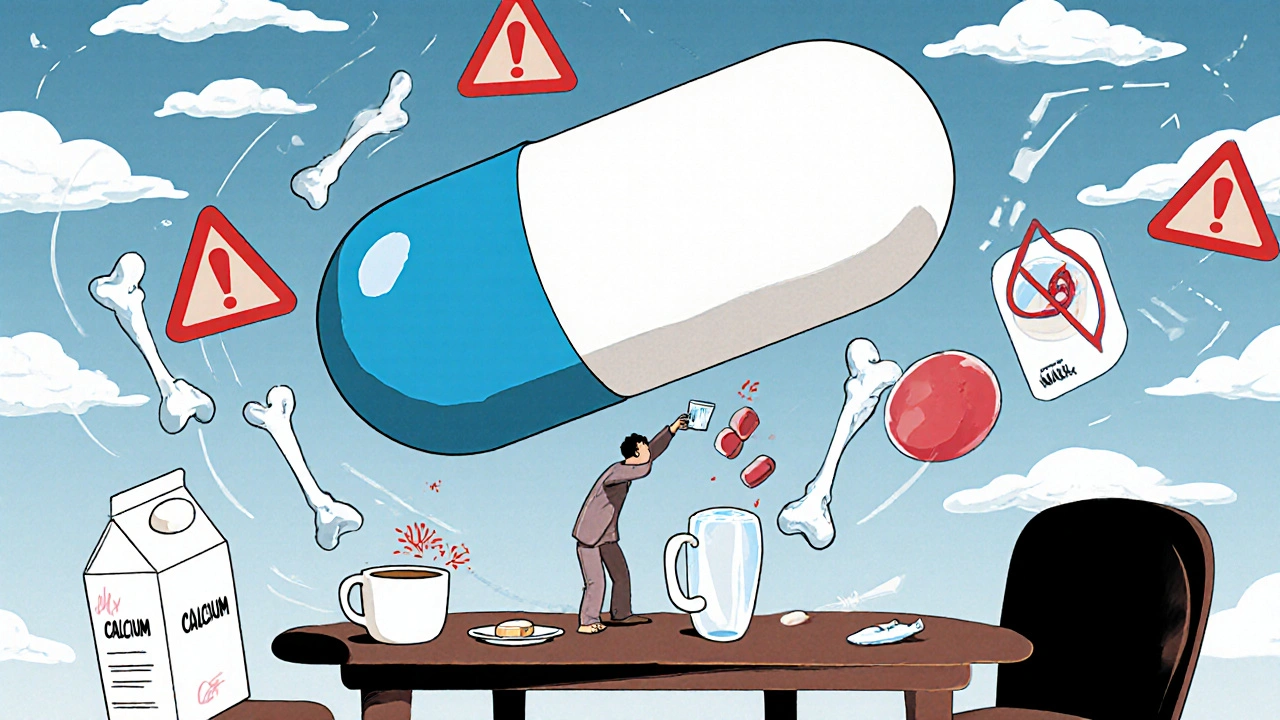Osteoporosis Treatment: Best Medications, Lifestyle Changes, and What Actually Works
When your bones become weak and brittle, even a minor fall can lead to a serious break. That’s osteoporosis treatment, a set of medical and lifestyle strategies designed to strengthen bones and prevent fractures in people with low bone density. Also known as bone loss management, it’s not just about popping a pill—it’s about changing how you live, eat, and move. Millions of people, especially women over 50, are told they have osteoporosis, but few are shown the full picture: what drugs actually work, which supplements matter, and what daily habits make the biggest difference.
At the core of any good osteoporosis treatment, a medical approach focused on increasing bone strength and reducing fracture risk. Also known as bone health therapy, it starts with bisphosphonates, a class of drugs like alendronate and risedronate that slow bone breakdown and are often the first line of defense. Also known as bone-strengthening medications, they are taken weekly or monthly and have been proven in real-world studies to cut hip fracture risk by up to 40%. But they’re not the only option. Denosumab shots, teriparatide injections, and even hormone therapy can be used depending on your age, health, and risk level. And yes, some people need more than one drug over time.
But drugs alone won’t fix what’s broken. You also need calcium supplements, a key mineral that forms the structural foundation of bones, typically taken with vitamin D to improve absorption. Also known as bone mineral support, they—along with enough vitamin D, a hormone-like nutrient that helps your body absorb calcium and regulate bone turnover. Also known as bone metabolism regulator, it—are non-negotiable. Most adults over 50 need 1,200 mg of calcium and 800–1,000 IU of vitamin D daily. Get it from food if you can, but most people need pills. And don’t forget movement: walking 30 minutes a day, lifting light weights, or doing balance exercises like tai chi isn’t just good for your mood—it directly tells your bones to get stronger.
What you won’t find in most doctor’s offices is the truth about what doesn’t work. Taking extra magnesium or collagen pills won’t reverse osteoporosis. Drinking lots of soda won’t magically weaken your bones—though too much caffeine and alcohol might. And skipping your meds because you’re worried about rare side effects? That’s riskier than taking them. The real danger isn’t the drugs—it’s doing nothing.
Below, you’ll find real comparisons: which medications are safest long-term, how to take calcium without stomach upset, why vitamin D levels matter more than you think, and what exercises actually reduce fall risk. No theory. No fluff. Just what works—for your body, your budget, and your life.

